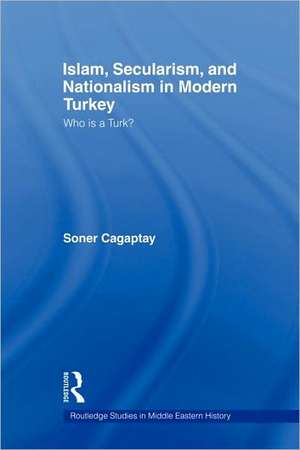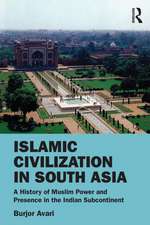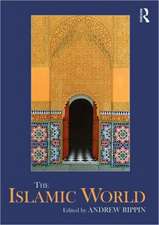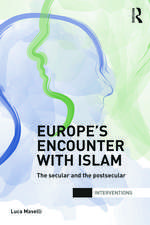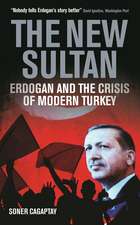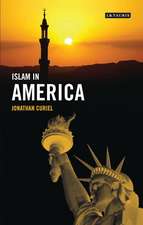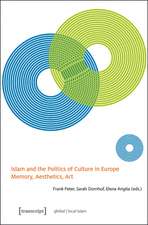Islam, Secularism and Nationalism in Modern Turkey: Who is a Turk?: Routledge Studies in Middle Eastern History
Autor Soner Cagaptayen Limba Engleză Paperback – 3 sep 2009
* Turkish nationalism
* the Ottoman legacy
* Kemalist citizenship policies and immigration
* Kurds, Muslims and Jews and the ethno-religious limits of Turkishness.
Incorporating documents from untapped Turkish archives, this book is essential reading for scholars and students with research interests in Turkey, Turkish nationalism and Middle East history.
| Toate formatele și edițiile | Preț | Express |
|---|---|---|
| Paperback (1) | 486.98 lei 6-8 săpt. | |
| Taylor & Francis – 3 sep 2009 | 486.98 lei 6-8 săpt. | |
| Hardback (1) | 1004.20 lei 6-8 săpt. | |
| Taylor & Francis – 15 dec 2005 | 1004.20 lei 6-8 săpt. |
Din seria Routledge Studies in Middle Eastern History
-
 Preț: 311.47 lei
Preț: 311.47 lei - 8%
 Preț: 383.57 lei
Preț: 383.57 lei - 18%
 Preț: 999.19 lei
Preț: 999.19 lei -
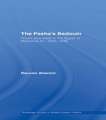 Preț: 415.67 lei
Preț: 415.67 lei - 16%
 Preț: 275.26 lei
Preț: 275.26 lei -
 Preț: 489.26 lei
Preț: 489.26 lei -
 Preț: 417.36 lei
Preț: 417.36 lei -
 Preț: 489.26 lei
Preț: 489.26 lei - 9%
 Preț: 938.18 lei
Preț: 938.18 lei - 17%
 Preț: 269.00 lei
Preț: 269.00 lei -
 Preț: 381.72 lei
Preț: 381.72 lei - 16%
 Preț: 273.85 lei
Preț: 273.85 lei - 9%
 Preț: 867.80 lei
Preț: 867.80 lei -
 Preț: 445.60 lei
Preț: 445.60 lei -
 Preț: 342.84 lei
Preț: 342.84 lei -
 Preț: 433.09 lei
Preț: 433.09 lei - 18%
 Preț: 1007.48 lei
Preț: 1007.48 lei -
 Preț: 416.22 lei
Preț: 416.22 lei -
 Preț: 389.38 lei
Preț: 389.38 lei -
 Preț: 418.65 lei
Preț: 418.65 lei - 12%
 Preț: 312.43 lei
Preț: 312.43 lei - 18%
 Preț: 1000.27 lei
Preț: 1000.27 lei - 18%
 Preț: 1012.27 lei
Preț: 1012.27 lei -
 Preț: 440.95 lei
Preț: 440.95 lei -
 Preț: 496.78 lei
Preț: 496.78 lei -
 Preț: 489.57 lei
Preț: 489.57 lei -
 Preț: 426.70 lei
Preț: 426.70 lei
Preț: 486.98 lei
Nou
Puncte Express: 730
Preț estimativ în valută:
93.19€ • 97.17$ • 77.45£
93.19€ • 97.17$ • 77.45£
Carte tipărită la comandă
Livrare economică 21 martie-04 aprilie
Preluare comenzi: 021 569.72.76
Specificații
ISBN-13: 9780415567763
ISBN-10: 0415567769
Pagini: 284
Dimensiuni: 156 x 234 x 15 mm
Greutate: 0.4 kg
Ediția:1
Editura: Taylor & Francis
Colecția Routledge
Seria Routledge Studies in Middle Eastern History
Locul publicării:Oxford, United Kingdom
ISBN-10: 0415567769
Pagini: 284
Dimensiuni: 156 x 234 x 15 mm
Greutate: 0.4 kg
Ediția:1
Editura: Taylor & Francis
Colecția Routledge
Seria Routledge Studies in Middle Eastern History
Locul publicării:Oxford, United Kingdom
Cuprins
Introduction: Turkish Nationalism Today 1. From the Muslim Millet to the Turkish Nation: The Ottoman Legacy 2. Secularism, Kemalist Nationalism, Turkishness, and the Minorities in the 1920s 3. Kemalism Par Excellence in the 1930s: The Rise of Turkish Nationalism 4. Who is a Turk? Kemalist Citizenship Policies 5. Secularized Islam Defines Turkishness: Kurds and Other Muslims as Turks 6. Ethno-Religious Limits of Turkishness: Christians Excluded from the Nation 7. Jews in the 1930s: Turks or Not? Conclusion: Understanding Turkish Nationalism in Modern Turkey: The Kemalist Legacy
Notă biografică
Soner Cagaptay is senior fellow and director of the Turkish Research Program at the Washington Institute for Near East Policy, a Washington-based think tank. His research interests include U.S.-Turkish relations and modern Turkish history.
Recenzii
'There is no question that Cagaptay - a highly intelligent, serious, soul-searching, and inquisitive scholar - has put his finger on several crucial issues in Turkish political and cultural life.' - Kemal H. Karpat, International Journal of Middle East Studies, Vol. 39 No. 2, May 2007
'...it stands apart from some of the previous works on the subject by its in-depth and judicious analysis based on a careful reading of the available archival evidence' - Sabri Sayari, Sabanci University, Istanbul, Middle East Studies Association Bulletin, Winter 2007
'...it stands apart from some of the previous works on the subject by its in-depth and judicious analysis based on a careful reading of the available archival evidence' - Sabri Sayari, Sabanci University, Istanbul, Middle East Studies Association Bulletin, Winter 2007
Descriere
This book examines Turkish and Balkan nationalism, arguing that the legacy of the Ottomon millet system which divided the Ottoman population into religious compartments called millets, shaped Turkey’s understanding of nationalism during the interwar period.
